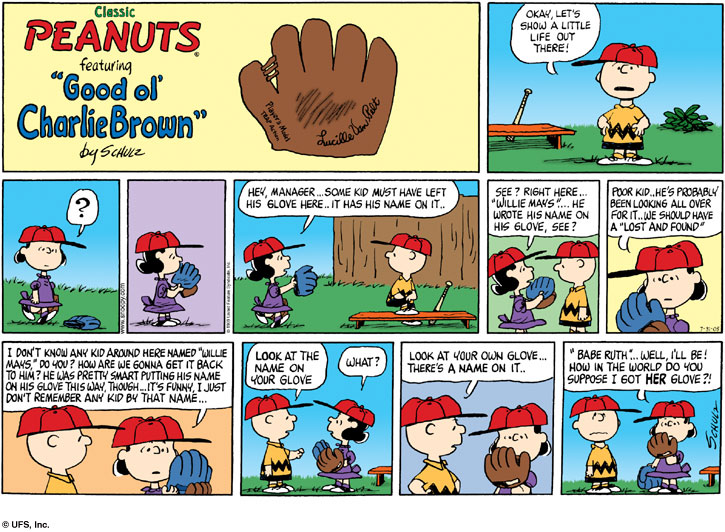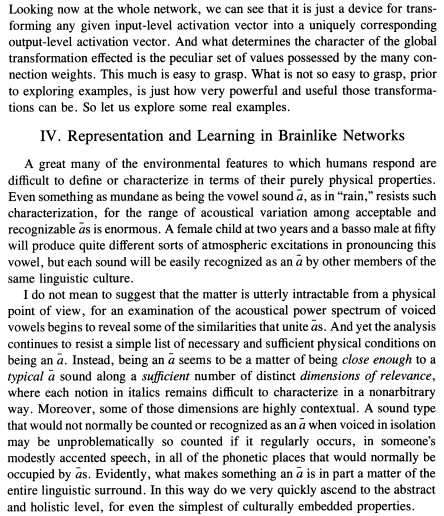Monthly Archives: April 2013
Scrappers Edge Freeplayers 6-5!

April 28. Day Two of season twenty-seven. 9:45am, Field #8, Forest Hills Park, Cleveland Heights, Ohio? Drizzling.
Then a busload of 9-11 year old boys and their minders unload and inform us they have a permit for the hallowed field for this day.
We count our numbers and seems their are eight, and we will commence to practice the game of softball. We make our way over the the fenced in softball fields. Another team is practicing on the northwest diamond–no doubt for the opening week of league play–and Dave asks of them if they will engage us in a friendly game.
“No.”
Later, with a light rain falling, a second inquiry is made and this other team agrees to a game. As it turns out, our spontaneous opponent is a co-ed team in the co-ed league. (We’d be co-ed too; alas…) They inform us in the league they are in the men bat on their ‘off batting side.’ However, for the purpose of what amounts to a scrimmage-type game, they decide not to do so.
We play four innings, and the line score looks like this at the end:

What fun was had! After the game, the two teams collided in gratitude and high fives and hand shakes. We mentioned anybody is welcome to join us on Sunday mornings. We told the Scrappers,
We’ve been playing pick up games for decades here on Sunday mornings.
April 21. Opening day and we have eleven, then Pete shows up and we’re twelve. It was a crisp day. The metal bats could transfer quite a pointed zing at times.
[evp_embed_video url=”http://squareone-learning.com/blog/wp-content/uploads/Matt-2013(1).mp4″]
Freeplay Softball league
Sunday mornings 9:30; game time 10:00am
Open to participants 16-116 years of age; any gender; any background
We try to keep an accurate score.
Filed under adult learning, play
Painting on a Pad
h/t iPad Creative Blog.
The IPad Creative Flickr group has lots of wonderful ‘way cool’ creations.
Filed under creative captures
Gods of the Abstract Social
Several years ago I heard an introductory presentation by a retired sociologist. He spent a half hour presenting basics so he could frame a further argument about politics in a small city. The problem of introducing sociology is impressive to me–there was no mention of problems in this introductory presentation. Sociology sets off to abstract social functionalities in various ways and the ‘meta’ in relation to each such way is abstracted too; conundrums of self-reference and subjectivity and multiple subjectivities, are abstracted, so forth, on and on, etcetera.
The sociological project often ventures away from the sensible matter of considering and studying the practical sociological experience and learned informal social means of the (so-called) folk. What of a field of inquiry termed Folk Sociology? I will need to google it!
Excerpt via N+1.
Too Much Sociology N+1 Magazine – The Editors – This spread of sociological thinking has led to sociological living?—?ways of thinking and seeing that are constructed in order to carry out, yet somehow escape, the relentless demystification sociology requires. Seeing art as a product, mere stuff, rather than a work, has become a sign of a good liberal (as opposed to bad elitist) state of mind. This is why you must support upper-middlebrow Terrence Malick one day, and the next spuriously shock everyone with a loud defense of Transformers: Dark of the Moon. Too often, being on the left tasks you with a vigilant daily quest to avoid being tagged with snobbery. In sociological living, we place value on those works or groups that seem most likely to force a reevaluation of an exclusive or oppressive order, or an order felt to be oppressive simply because exclusive. And yet despite this perpetual reevaluation of all values, the underlying social order seems unchanged; the sense of it all being a game not only persists, but hardens.
The initial demystifying shock of the sociology of culture in the academy partly accounts for its popularity. Thanks to the dead ends of certain kinds of European hermeneutics the realization that repeated analyses of Balzac novellas might not shake the foundations of the subject, let alone those of capitalism?—?it became more promising to ask why certain classes of people might be interested (and other classes not interested) in Balzac at all. No more appeals to the inexplicable nature of genius. Seen from the longue durée of social change, individual authors or works were less important than collectives or status groups, cities or systems. Like latter-day Northrop Fryes, armed with data, the critic-sociologists converted writers back into “literature” as a system, and from there into refractions of codes, institutions, and classes.
The effect on a sector of the professoriat, at least, has been liberating. It has led to a new wave of semi-sociological studies of institutions instead of works. Many of these, such as The Economy of Prestige or The World Republic of Letters, are, if we permit ourselves a value judgment, among the best works of criticism in our time. The overpowering influence of sociology outside its own disciplinary borders was recently verified in a list of “most-cited” intellectuals in the humanities.
“Most-cited intellectuals” is etched here without irony!
Personally, I’m curious about folk sociology*, and glad, Hans-Georg Moeller wrote Luhmann Explained From Souls to Systems. The opening leaf in Moeller’s book offers up Niklas Luhmann this way:
It has always been clear to me that a thoroughly constructed conceptual theory of society would be much more radical and much more discomforting in its effects than focused criticisms–criticisms of capitalism for instance–could ever imagine.
…a fine Batesonian insight methinks.
* (Speculation;) First order question of folk sociology: What do you know about your being an agent and actor? embeds a second order problem of reflexivity.
Filed under sociology
Twenty Six Zeroes! The Oldest Sound
Via Mashable, in turn via technewsdaily, in turn referencing the source, Professor John G. Taylor, Department of Physics, University of Washington, the 2013 Planck Version of The Sound of the Big Bang.
Scroll down his page for explanation. Key point in my view:
The sound frequencies used in the simulation must be scaled upward by a huge factor (about 10 to the 26 power) to match the response of the human ear, because the actual Big Bang frequencies, which had wavelengths on the order of a fraction of the size of the universe, were far too low to be heard by humans (even had any been around).
10 to the 25th power is: one hundred million million million million
Bonus.
Filed under science
Rep ‘n’ learnin’
Dependency relations between phenomena can be very complex. In much of life, dependencies are conditional and probabilistic: If I put a fresh worm on the hook, and if it is early afternoon, then very probably I will catch a trout here. As we learn more about the complexities of the world, we ‘upgrade’ our representations of dependency relations;10 we learn, for example, that trout are more likely to be caught when the water is cool, that shadowy pools are more promising fish havens than sunny pools, and that talking to the worm, entreating the trout, or wearing a ‘lucky’ hat makes no difference. Part of what we call intelligence in humans and other animals is the capacity to acquire an increasingly complex understanding of dependency relations. This allows us to distinguish fortuitous correlations that are not genuinely predictive in the long run (e.g., breaking a tooth on Friday the thirteenth) from causal correlations that are (e.g., breaking a tooth and chewing hard candy). This means that we can replace superstitious hypotheses with those that pass empirical muster.
Patricia Smith Churchland (Wikipedia) How Do Neurons Know?
Presentation: Philosophy In the Age of Neuroscience
I’m agnostic in so many ways! I’m not an advocate for the proposal that states: Brain = Mind. Still, I am really pleased the Churchland’s convictions have cascaded–as it would be–into the field of ‘The Mind.’ I remain suitably impressed by the evidence which certifies if the physical system of the brain is shockingly altered, the mind is altered too.
Filed under psychology, science
Ding Dong
Do you know what I mean when I speak of a person who spouts something stupid and/or idiotic, and, remarkably, does so as if the sheer twin forces of their sincerity and belief might convert this ‘something’ into a something smart or insightful?
Heck, I’ve done this many times; usually about local sports teams.
Don’t blame the financial crisis on borrowers.
Don’t tell me that poverty simply reflects the bad ethics and attitudes of the poor.
Don’t try to explain ‘libertarian philosophy’ or ‘intelligent design.’ Just: stop before you make a fool of yourself.
Don’t valorize Ronald Reagan or Margaret Thatcher by telling me what each accomplished as if the bloodshed never made it to their hands.
Filed under current events







